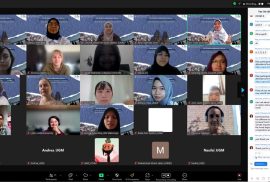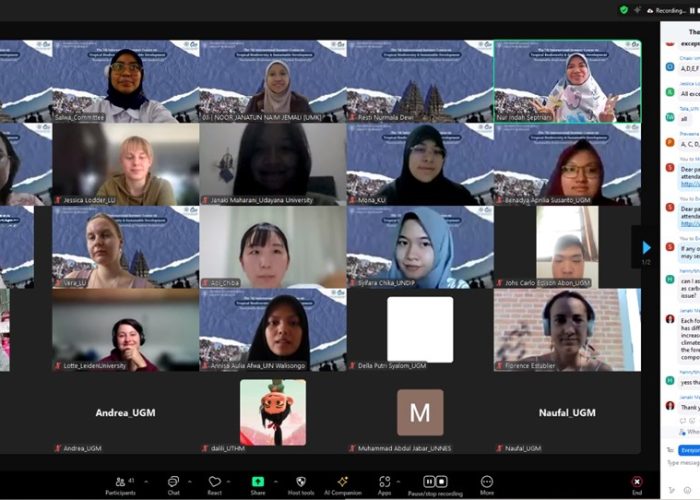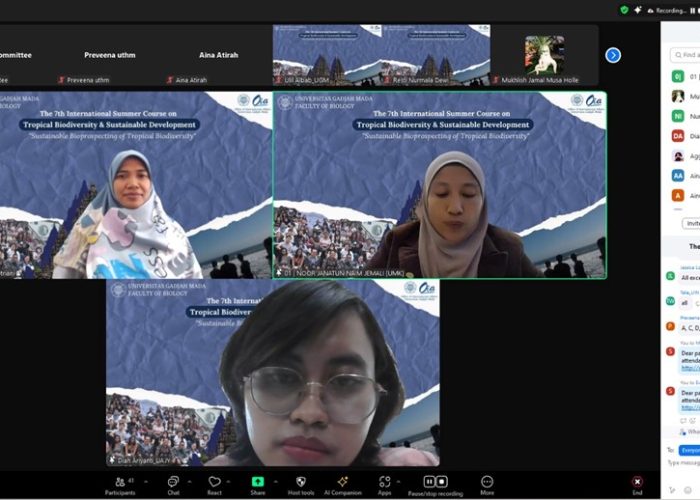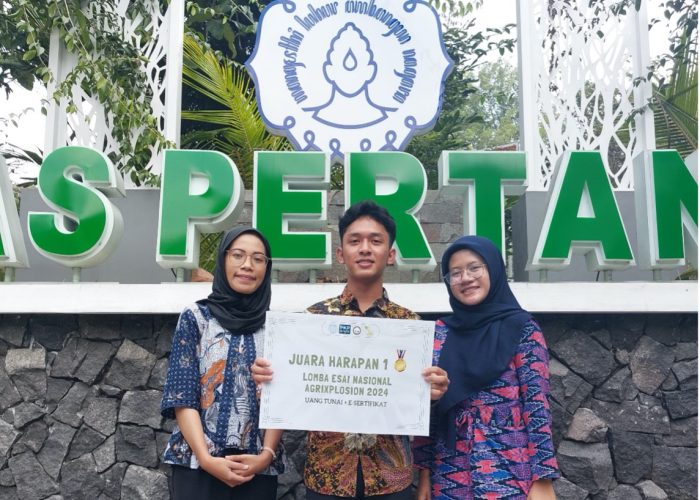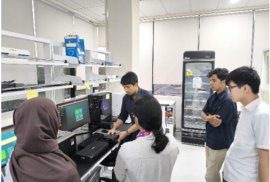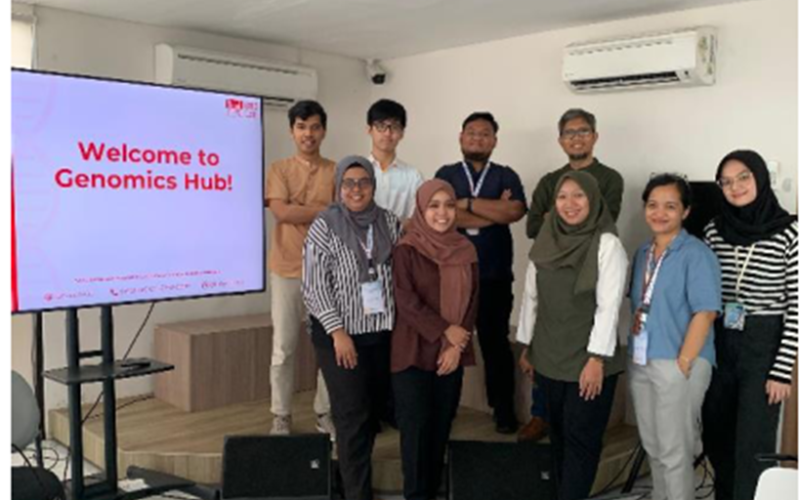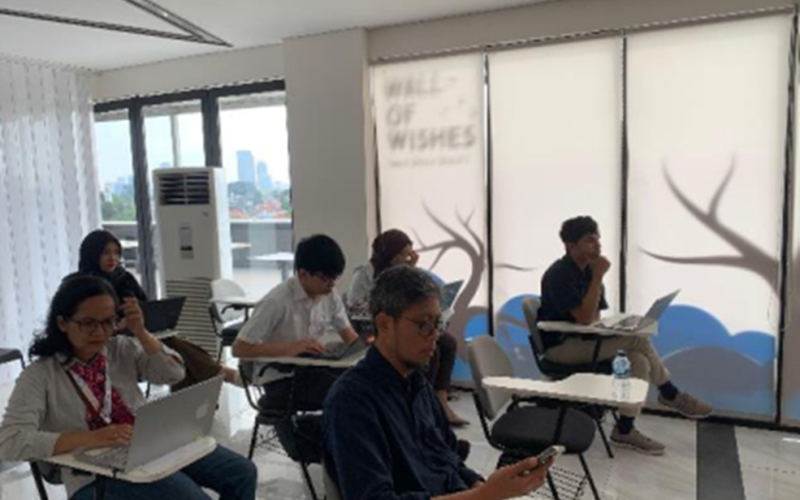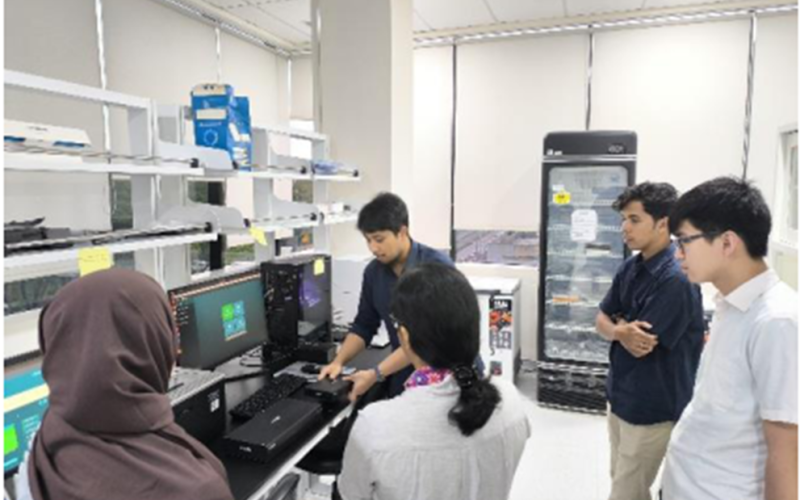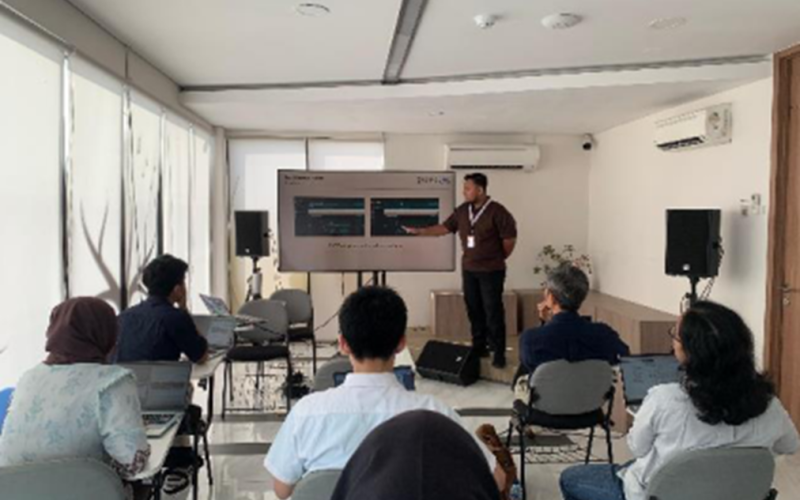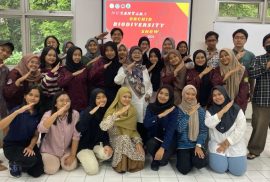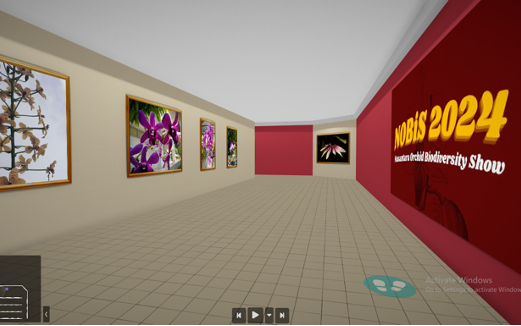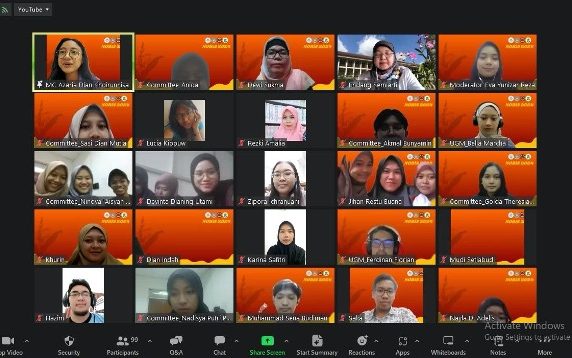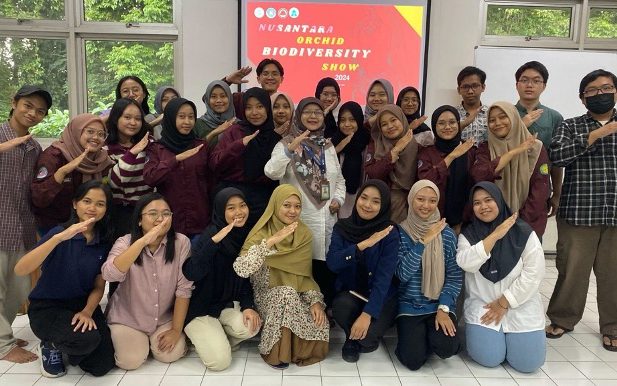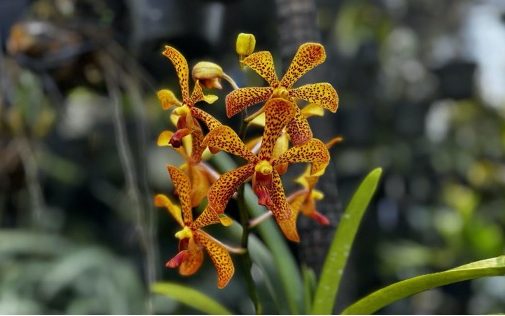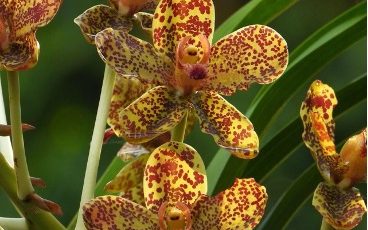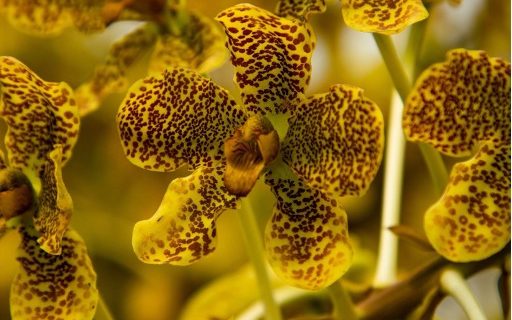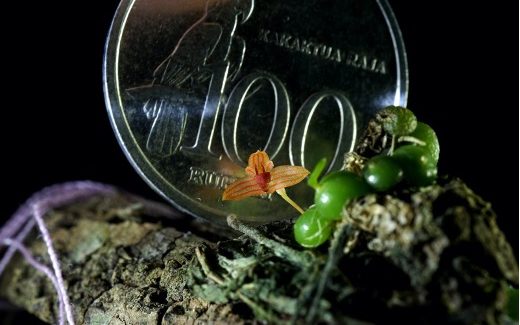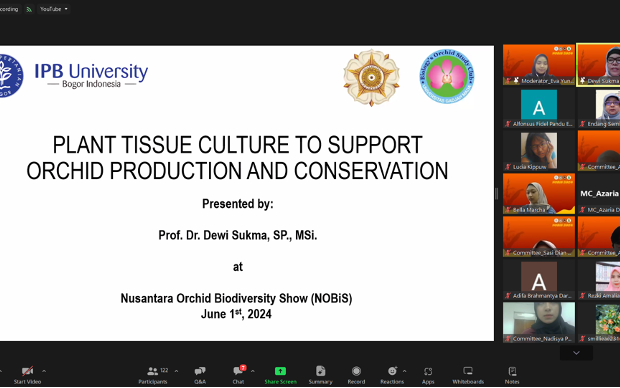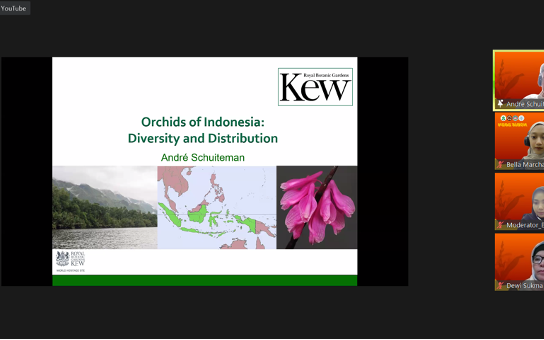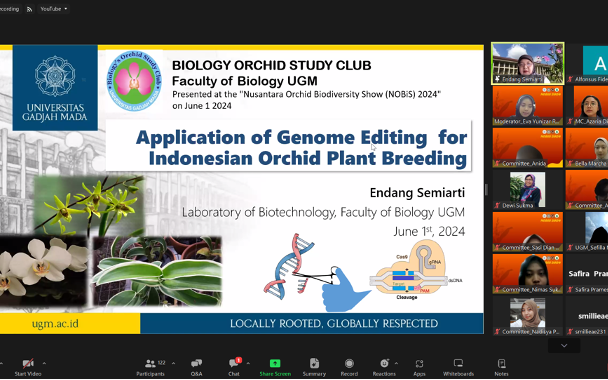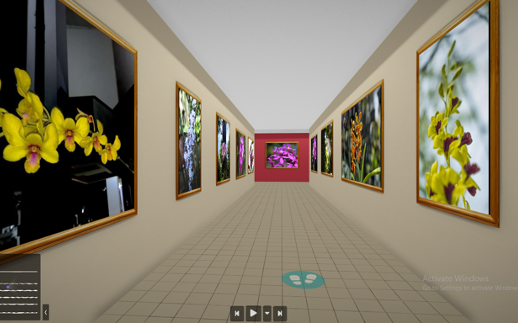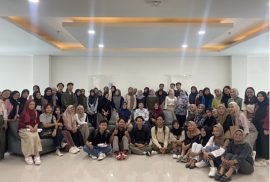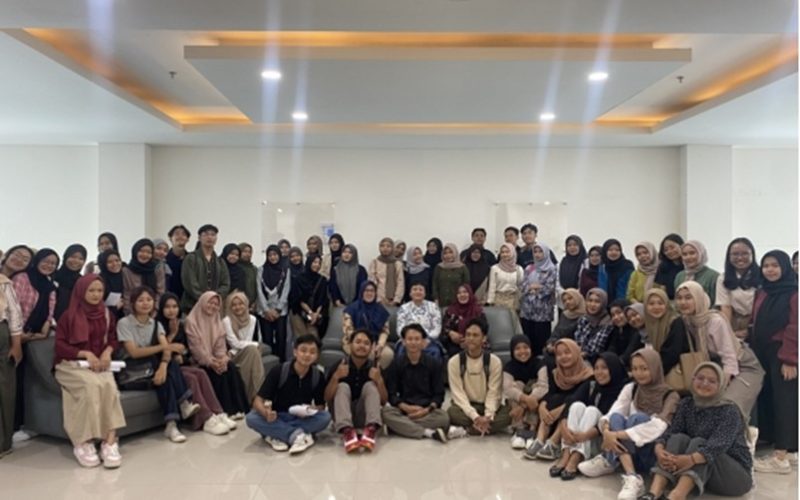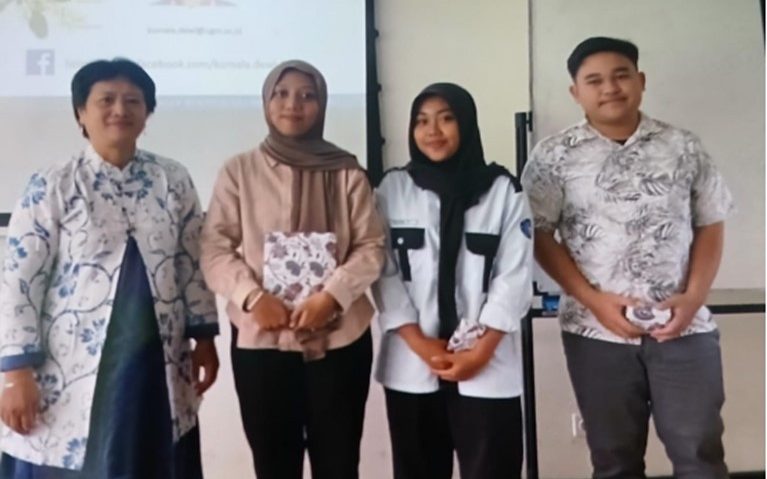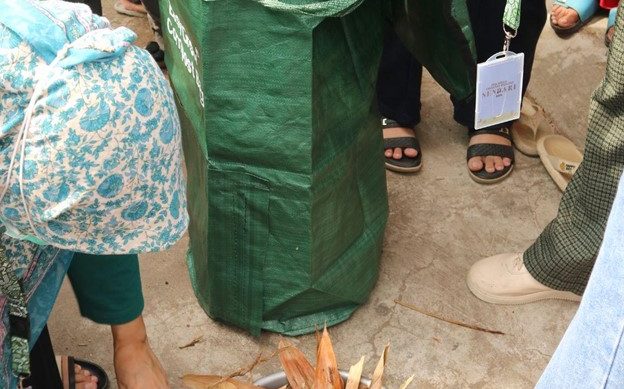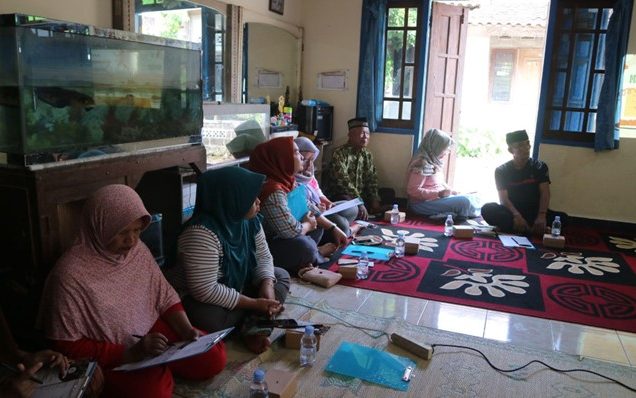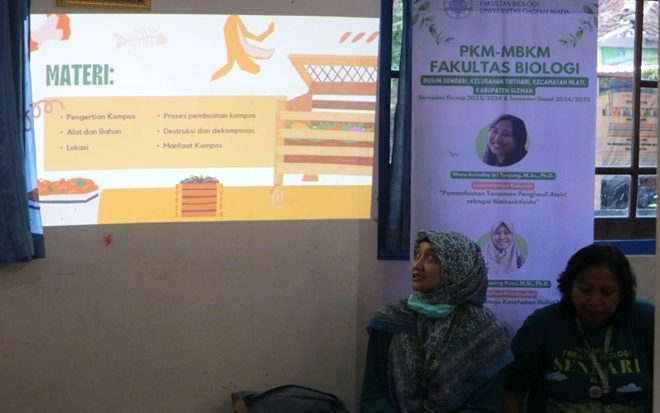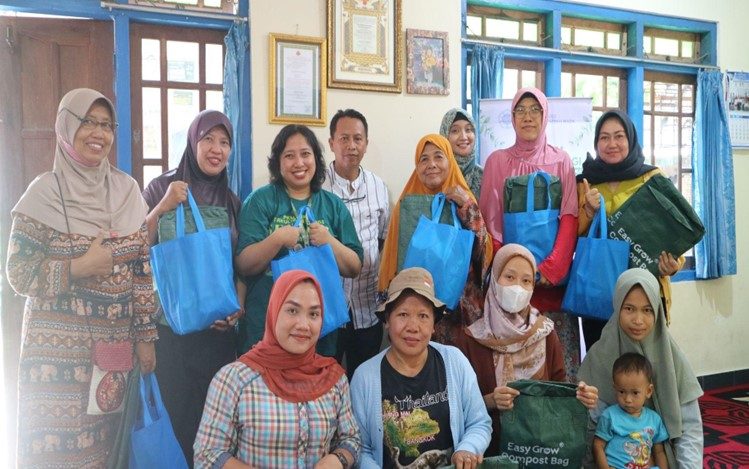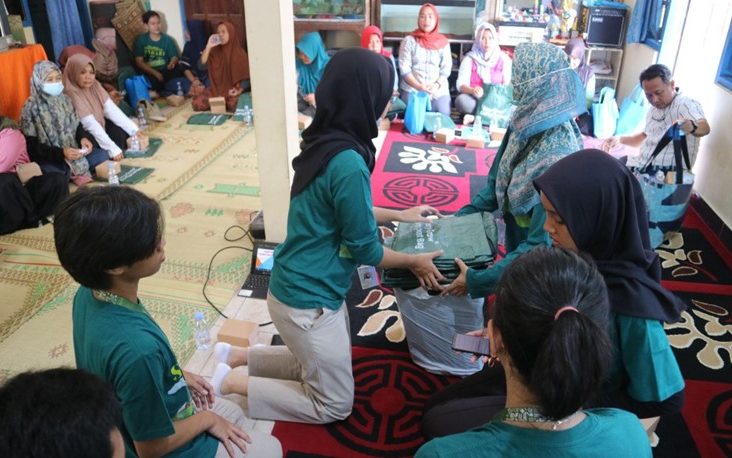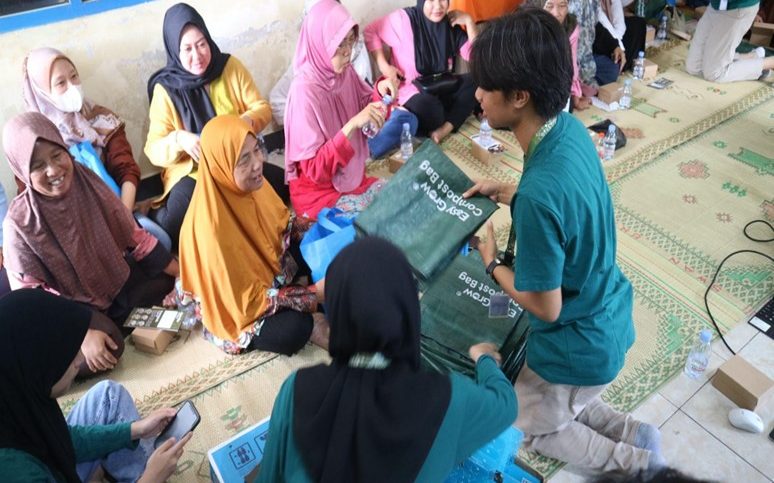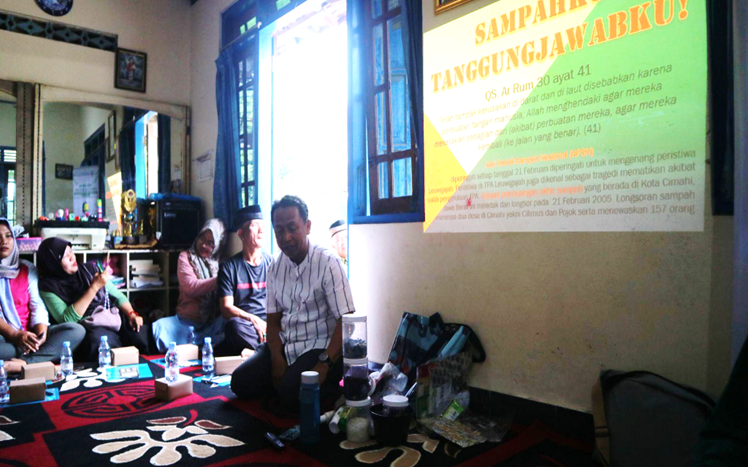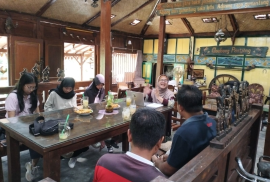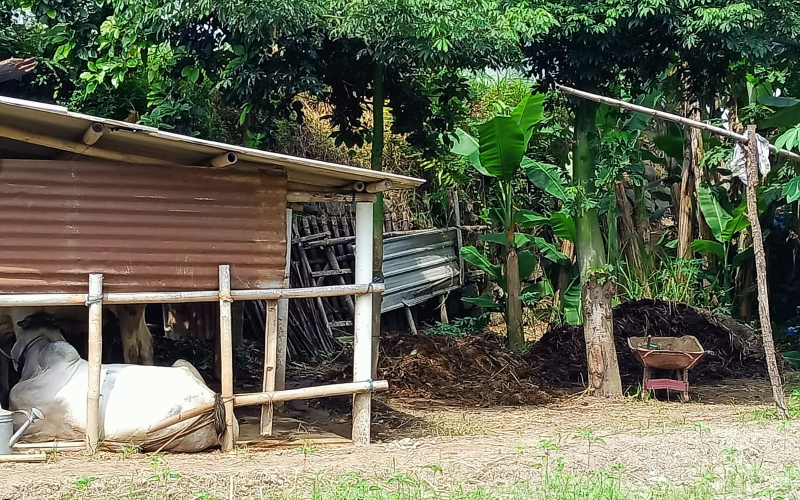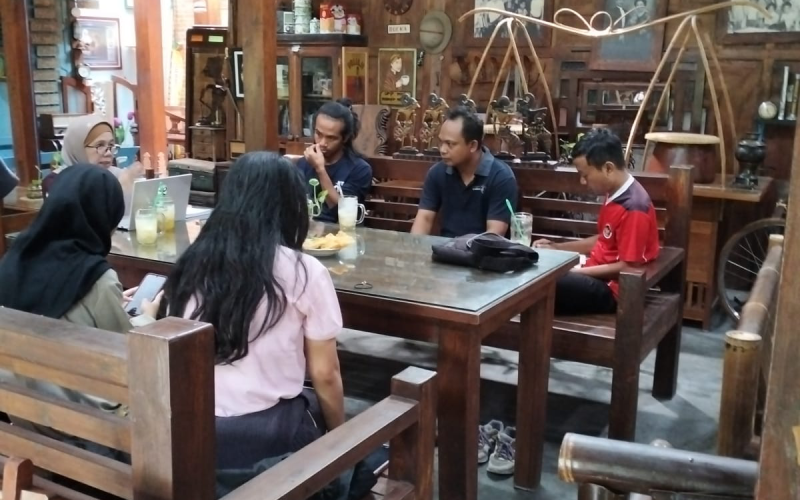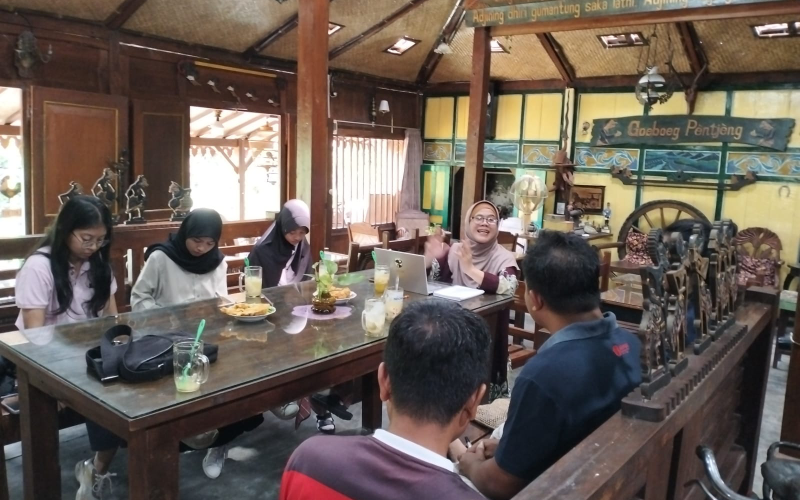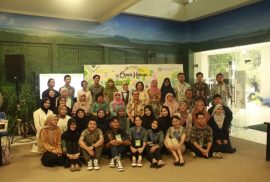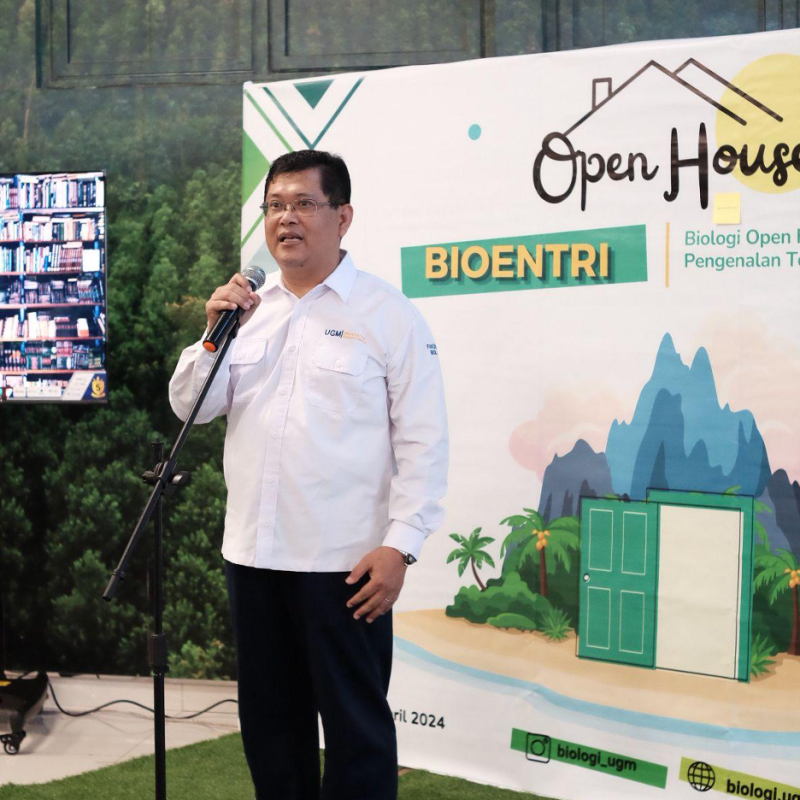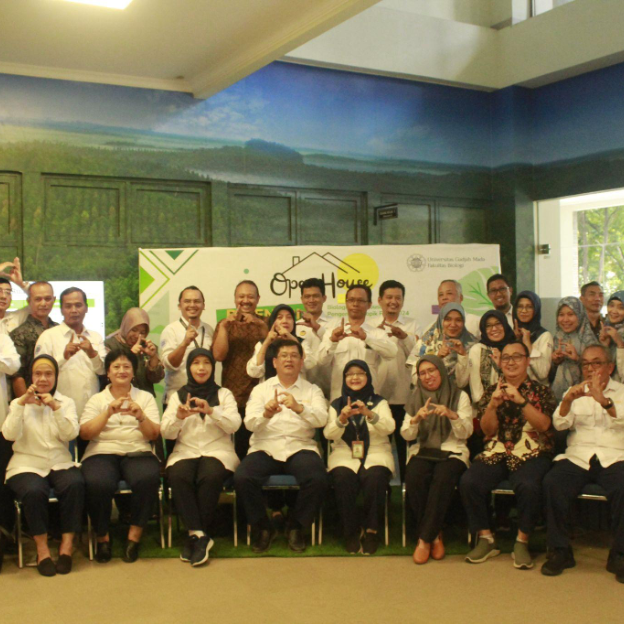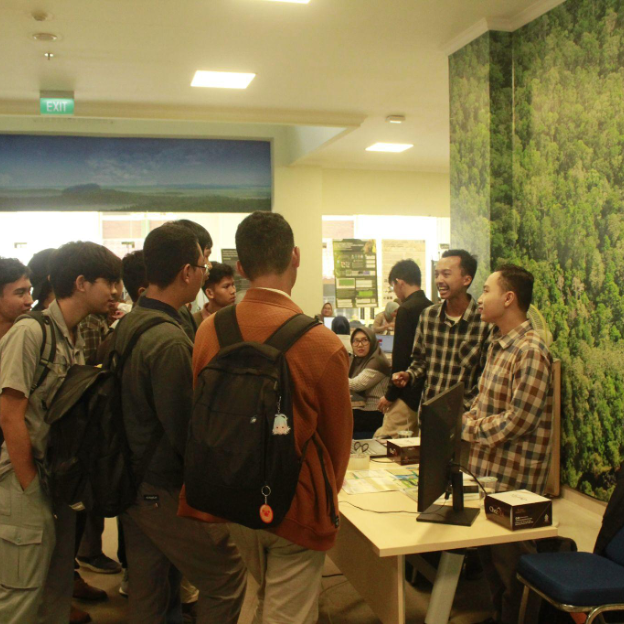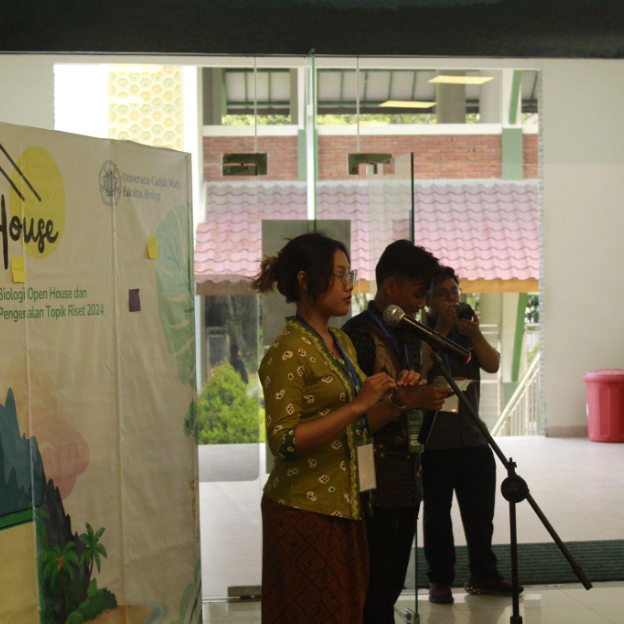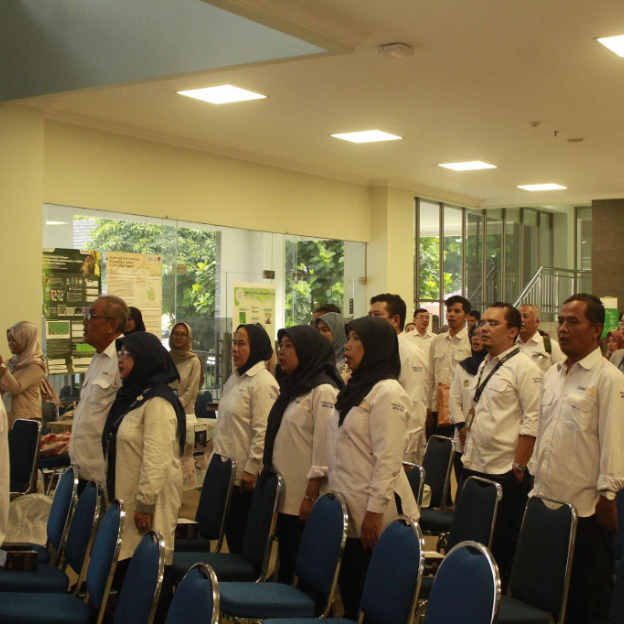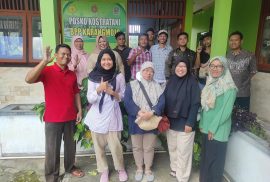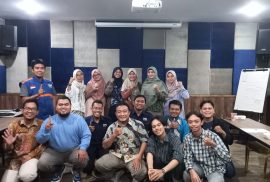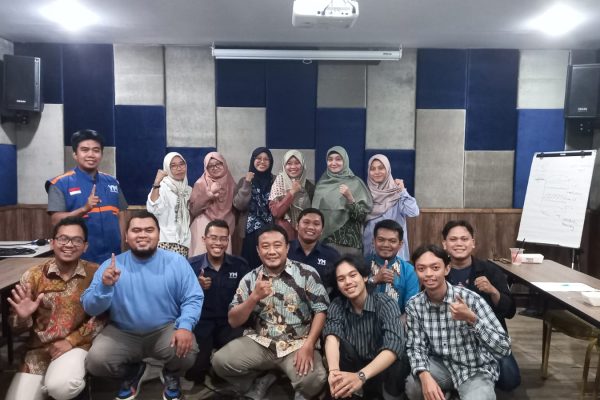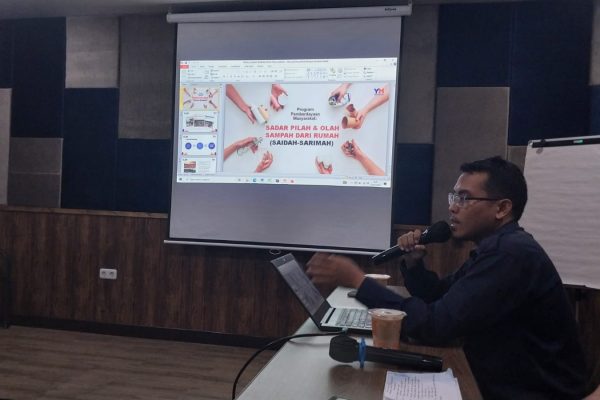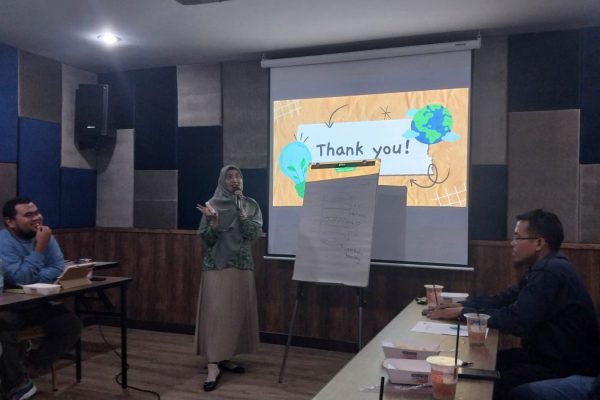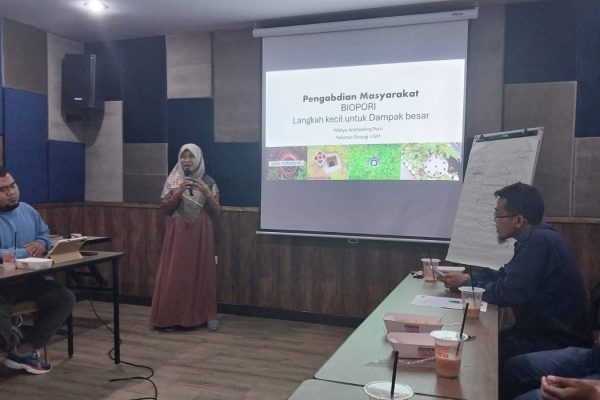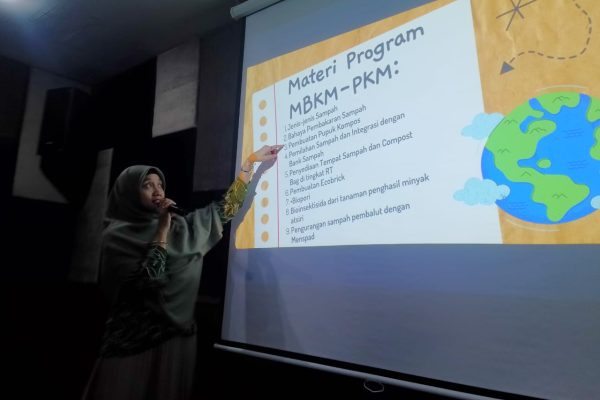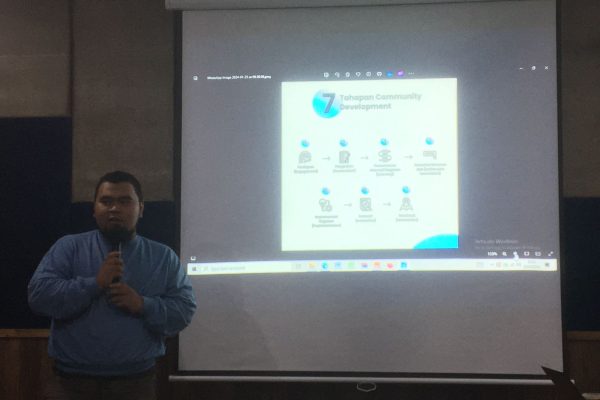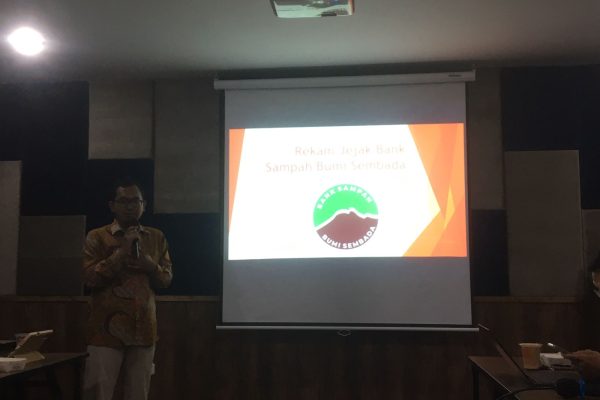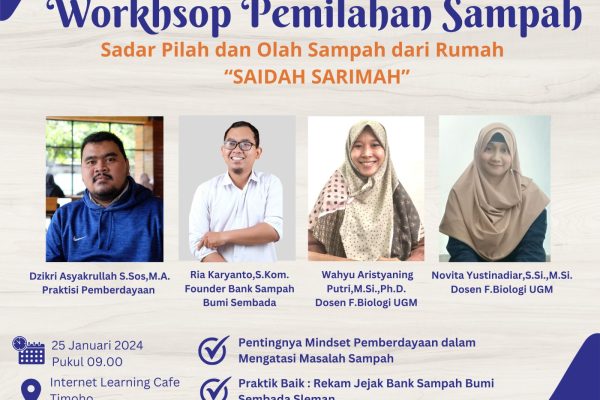SDG 13 : Organize Climate Action
[Authors: Azra Belva Naprilian and Kotimah]
Day 1: Introduction to ONT Platform and Basic Bioinformatics
Day 2: Advanced ONT Features and Data Processing
Day 3: Metagenomic Analysis and Final Project
Importance of NGS Analysis in Supporting Biosecurity Topics to Achieve Food Security
The Nusantara Orchid Biodiversity Show (NOBiS), which is a series of orchid photography competitions and annual webinar, is being held again by the Biology Orchid Study Club (BiOSC), Faculty of Biology, UGM. This webinar is held online with the aim of educating and providing training to the younger generation through seminars and activities workshop. This year’s orchid photography competition has the theme “Orchid Odyssey: Revealing the Extraordinary Journey of Orchids Through The Past, Present, and Future”. A total of 56 participants took part in the orchid photography competition by submitting their work on 7 – 17 May 2024. The results of the participants’ photography work are then displayed in the form of a virtual exhibition via ArtSteps which can be accessed by all participants. The winners of the orchid photography competition at the NOBiS event were Dary Saka Fitrady as First Place, Imaduddin Akhyar Kusumaperdana as Second Place, Yosvaldo Gerry Setiono Putra as Third Place, and Muhammad Nadhif Al Sulthony as Favorite Champion, which was announced at the peak event of the 2024 NOBiS.
The orchid photography competition has a positive impact on sustainable development. Webinar and photography competitions can contribute to the appreciation of biodiversity, which is in line with Sustainable Development Goals (SDGs) 12: Responsible consumption and production, 15: Life on Land, and 17: Partnership to achieve goals. Orchid photography is an effort that can be used as a tool to visualize biodiversity and help remind us of the beauty of nature and the importance of protecting the environment.
NOBiS webinar event this year carries the theme “Orchid Odyssey: Revealing the Extraordinary Journey of Orchids Through The Past, Present, and Future” with the implementation time on 1st June 2024 at 09.30 online and attended by 144 participants. The NOBiS 2024 webinar aims to provide a means for the public to learn and understand the preservation of orchids in Indonesia through genome editing and tissue culture propagation techniques. Therefore, this year, BiOSC invited three speakers who have become experts in the field of orchids in Indonesia, namely Prof. Dr. Endang Semiarti, M.S., M.Sc., Prof. Dr. Dewi Kusuma, S.P., M.Si., and Dr. André Schuiteman.
Prof. Dr. Endang Semiarti, M.S., M.Sc. is a head of Laboratory of Biotechnology, Faculty of Biology Universitas Gadjah Mada and has research focus on plant tissue culture, plant molecular genetics, plant biotechnology, orchidology, cell and molecular biology. On this occasion, he shared insights regarding Indonesian Orchid Plant breeding with the application of Genome Editing. Current orchid populations in nature are decreasing due to natural disasters, illegal logging, and domestication for collection, decoration, and also for herbal medicine. So we need Ex situ and In situ conservation efforts such as genome editing using CRISPR/Cas9 system as the cheapest and easiest to apply technology, having a revolutionary impact on basic research to study gene function and plant breeding to produce new orchids with plenty of seedlings and early flowering.
Orchid production and conservation also can be supported by the method of plant tissue culture, its delivered by Prof. Dr. Dewi Sukma, S.P., M.Si. as a professor of Agronomy and Horticulture department of Agronomy and Horticulture Faculty of Agriculture IPB University and have research interest in plant genetic diversity, breeding and cultivar development and also in plant genetic engineering. Orchid need tissue culture because its lack of seed endosperm so it can provide a higher number of seedling and provide a sterile ad healthy propagules, tissue culture can be an independent breeding of time and season and also can facilitated the in vitro breeding to maintain the existence and availability of Indonesian orchid for future research and potential uses.
The last topic delivered by Dr. André the research leader in the Asia team of Royal Botanic Garden United Kingdom with the research focus on Taxonomy, Conservation and Evolution of Orchidaceae. The diversity of Indonesian orchid is about 26000 species in 800 genera, but not easy to tell because many species are poorly understood, especially the distribution of species in Borneo and New Guinea. The existence and availability of Indonesian orchid should be maintained because there is a lot of diversity and distribution of it such as Dimorphorchis lowii and Paraphalaenopsis laycockii from Borneo, Bulbophyllum muricatum and Dendrobium azureum from Tanah Papua.
It is hoped that the informative webinar material will broaden the knowledge of orchid lovers as well as introduce BiOSC to the outside as a study group that focuses on orchids with the jargon of “Tumbuh, Berkembang, Lestari”. Nusantara Orchid Biodiversity Show (NOBiS) National Photography Competition
2024: “Orchid Odyssey: Revealing the Extraordinary Journey of Orchids Through The Past, Present, and Future” expected to inspire and encourage deeper understanding of history, uniqueness, preservation, and future challenges faced by orchids. Through photography, Participants are expected to be able to express messages about the existence of orchids in the past, present and future. [Author: BiOSC]
YOGYAKARTA, INDONESIA — February 19, 2024 — A team of lecturers led by a lecturer from the Faculty of Biology at Universitas Gadjah Mada (UGM) held an engaging Focus Group Discussion (FGD) with millennial farmers from Kalurahan Karangmojo, Kapanewon Karangmojo, Gunungkidul Regency. This event is part of the Faculty of Biology’s initiative to encourage dialogue and collaboration between the academic world and field practitioners to enhance sustainable agriculture.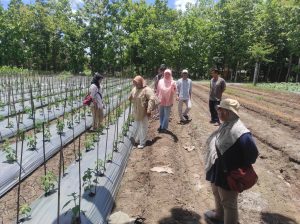
The FGD was held on February 18, 2024, in the meeting room of the Agricultural Extension Center of Kapanewon Karangmojo. The participating millennial farmers represented various backgrounds and experiences in agriculture, ranging from organic farmers to advanced technology farmers. They shared ideas, experiences, and challenges they face in running agricultural businesses in the modern era. The team of lecturers facilitating this FGD was an interdisciplinary inter-faculty team, including members from the Faculty of Biology (Zuliyati Rohmah, S.Si., M.Si., Ph.D. Eng., and Ludmilla Fitri Untari, S.Si., M.Si.), the Faculty of Mathematics and Natural Sciences (Umi Mahnuna Hanung, S.Si., M.Si.), and the Faculty of Pharmacy (Dr. Cintya Nurul Apsari, S.T.P., M.Si.).
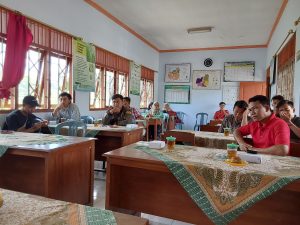 The discussions held during the FGD and field visits covered various topics, including the use of technology in agriculture, organic farming practices, natural resource management, and marketing strategies for agricultural products. The results of these discussions will form the basis for developing more relevant and responsive educational, research, and community service programs tailored to the needs of millennial farmers.
The discussions held during the FGD and field visits covered various topics, including the use of technology in agriculture, organic farming practices, natural resource management, and marketing strategies for agricultural products. The results of these discussions will form the basis for developing more relevant and responsive educational, research, and community service programs tailored to the needs of millennial farmers.
The Faculty of Biology UGM hopes that this FGD will be the beginning of a sustainable partnership between the university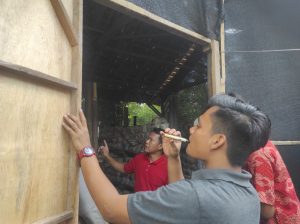 and millennial farmers, bringing tangible positive impacts to the advancement of the agricultural sector in Indonesia. This activity is closely related to several Sustainable Development Goals (SDGs) adopted by the United Nations. The dialogue and collaboration between the Faculty of Biology UGM and millennial farmers can increase farmers’ productivity and income (SDG 1: No Poverty) and support sustainable agriculture that enhances food security and nutrition (SDG 2: Zero Hunger). This initiative also develops more relevant educational programs for millennial farmers (SDG 4: Quality Education), supports economic growth and job creation in the agricultural sector (SDG 8: Decent Work and Economic Growth), and encourages innovation and modernization of agricultural practices (SDG 9: Industry, Innovation, and Infrastructure). The focus on organic farming practices and natural resource management supports sustainable production and consumption (SDG 12: Responsible Consumption and Production), and the sustainable agriculture discussed in the FGD contributes to climate change mitigation (SDG 13: Climate Action). Furthermore, the collaboration between the Faculty of Biology UGM and millennial farmers is a concrete example of partnerships that support the achievement of sustainable development goals (SDG 17: Partnerships for the Goals).
and millennial farmers, bringing tangible positive impacts to the advancement of the agricultural sector in Indonesia. This activity is closely related to several Sustainable Development Goals (SDGs) adopted by the United Nations. The dialogue and collaboration between the Faculty of Biology UGM and millennial farmers can increase farmers’ productivity and income (SDG 1: No Poverty) and support sustainable agriculture that enhances food security and nutrition (SDG 2: Zero Hunger). This initiative also develops more relevant educational programs for millennial farmers (SDG 4: Quality Education), supports economic growth and job creation in the agricultural sector (SDG 8: Decent Work and Economic Growth), and encourages innovation and modernization of agricultural practices (SDG 9: Industry, Innovation, and Infrastructure). The focus on organic farming practices and natural resource management supports sustainable production and consumption (SDG 12: Responsible Consumption and Production), and the sustainable agriculture discussed in the FGD contributes to climate change mitigation (SDG 13: Climate Action). Furthermore, the collaboration between the Faculty of Biology UGM and millennial farmers is a concrete example of partnerships that support the achievement of sustainable development goals (SDG 17: Partnerships for the Goals).

